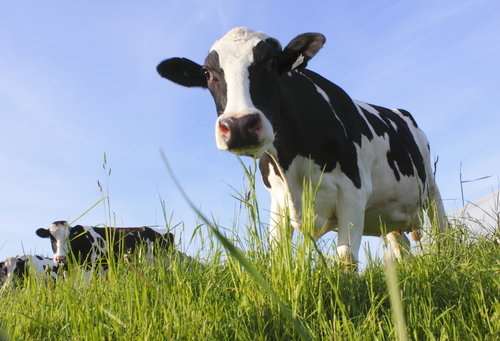Drinking the bovine beverage could help kids grow taller
By Diego Flammini
Assistant Editor, North American Content
Farms.com
Drinking a cold glass of cow’s milk can also help children grow taller when compared to children who drink alternative milk products, according to research from Toronto’s St. Michael’s Hospital.
Researchers studied more than 5,000 children between the ages of two and six, and found children who drink cow’s milk tend to be taller than kids who drink other milk products.
For each daily cup of non-cow’s milk, kids were 0.4 centimetres shorter than average for their age, researchers found. And for each daily cup of cow’s milk they drank, children were 0.2 centimetres taller than average.

The findings were published in the June edition of the American Journal of Clinical Nutrition.
While the height difference seems minimal, it’s more complex when you take into account the size of the child.
“When you are only 2.5 feet high and you are that different it is a fairly sizable difference,” Dr. Jonathon Maguire, the study’s lead author and pediatrician at St. Michael’s Hospital, told CBC in June.
In Canada, the nutritional content of cow’s milk is regulated.
The National Dairy Code mandates cow’s milk must contain certain amounts of Vitamin D, Vitamin A and specific fat levels, for example.
The nutritional requirements of alternative milk products aren’t regulated but some parents assume the products are on par with cow’s milk.
“If products are being marketed as being equivalent to cow’s milk, as a consumer and a parent, I would like to know that they are in fact the same in terms of their effect on children’s growth,” Dr. Maguire said in a hospital release in June.
More research is needed to determine why children who consume cow’s milk are taller than those who drink other milk products.